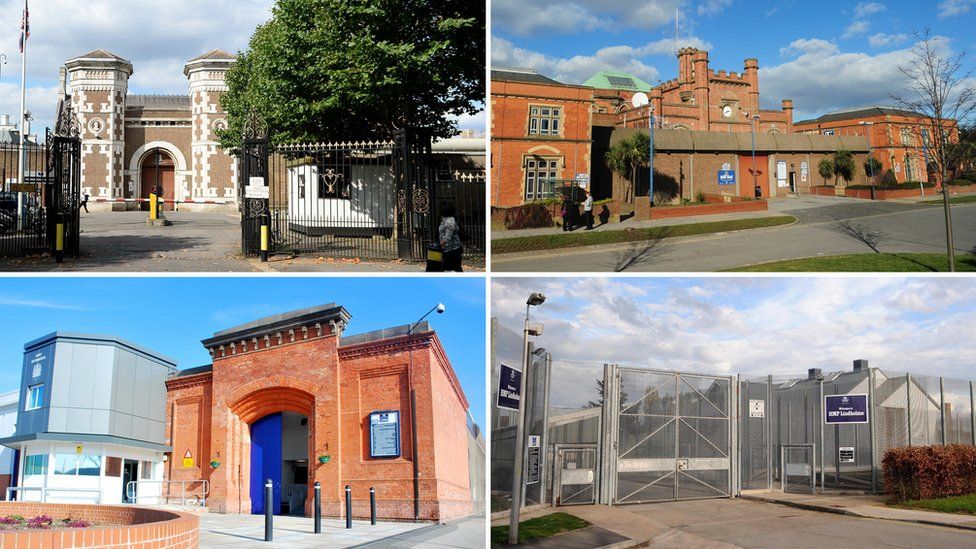Violence cut at seven of 10 'challenging' prisons - MoJ
- Published

Levels of violence and drug taking have fallen since last year at some of England's "most challenging" prisons, the Ministry of Justice (MoJ) has said.
The rate of assaults fell by 16%, while failed drug tests also dropped across the 10 prisons that were given £10m extra security funding in 2018.
But in three of the jails, Hull, Nottingham and Wormwood Scrubs, the rate of assaults increased.
Ex-minister Rory Stewart had vowed to resign if the prisons did not improve.
However, he was promoted to secretary of state for international development in May and then resigned in July anyway over Boris Johnson's Brexit plans, before the impact of the project on drugs and violence levels was known.
The percentage of failed drug tests across the 10 prisons halved between August 2018 and March this year, the MoJ said, although its report pointed out that the number of prisoners sampled was small.
As part of the scheme - given the name the "10 Prisons Project" by the MoJ - governors were given extra funds to spend on measures including for new X-ray body scanners, sniffer dogs, extra staff and basic repairs.
The MoJ said the project, which ran for a year from June 2018, had now finished but added that it would form "part of our continuing efforts to boost safety, security and decency in all prisons".

The figures showed that the rate of assaults per 1,000 prisoners across the 10 jails fell from 42.9 in the three months to August last year to 36.1 in the quarter to June - a decrease of around 16%, compared with a drop of roughly 8% across all prisons in England and Wales.
Lucy Frazer - who replaced Mr Stewart as prisons minister - said she was "encouraged" by the new figures.
"We are already using what has worked to improve the rest of the estate, spending £100m on airport-style security to stop the scourge of mobile phones and drugs that fuel crime and disorder in jails," she added.
But critics of the scheme said the MoJ's project did not go far enough.
The chief executive of the Howard League for Penal Reform, Frances Cook, said the measures "will fail to deliver if prisoners are given nothing to do and released with nowhere to live".
She added: "Tightening security in a few troubled prisons is all well and good, but ministers will have to take a different approach if they want to tackle the problems in more than 100 jails across the country."

The charity Prison Reform Trust welcomed the reduction in violence but warned that the 10 prisons project and the fate of a prisons minister "always risked being a distraction from the real issue" of overcrowding.
A spokesman added: "Any glimmers of systemic improvement will be quickly snuffed out if we return to the failed 'prison works' policies that have created this calamity in the first place."
The government has also pledged to recruit thousands of extra prison officers and create 10,000 additional prison places in England and Wales.
- Published17 August 2018
- Published21 August 2019
- Published14 August 2019